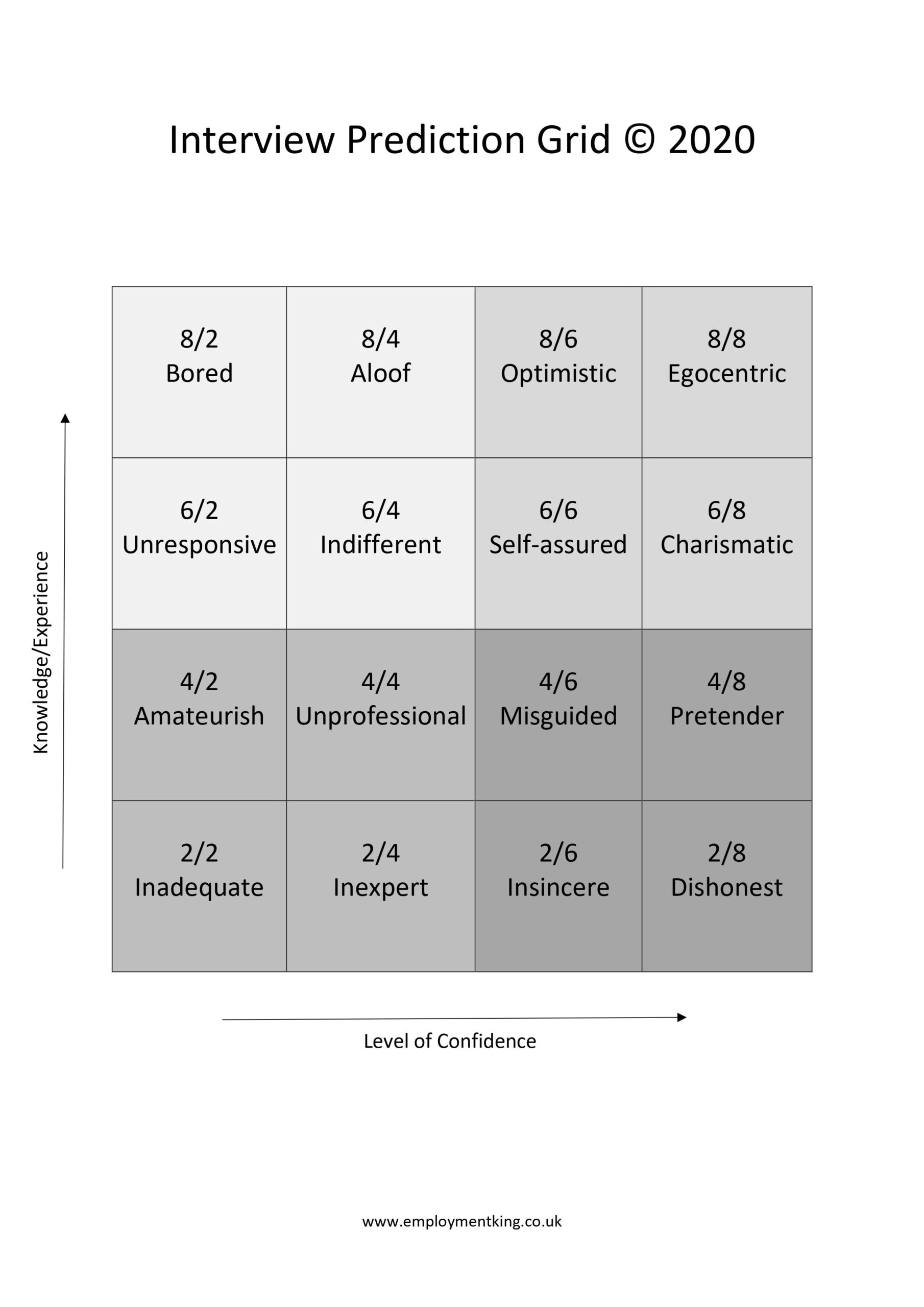10 Job Interview Questions and Answers for a Personal Assistant
A personal assistant (PA), sometimes referred to as an ‘executive secretary’ will work closely with senior management team members providing administrative support.
The personal assistant is responsible for the support of a senior manager, supporting them with their time management, dairy management, and internal and external communication.
Employers are looking to hire a personal assistant who is deemed to be trustworthy, well organised, a strong administrator and someone who is able to take on extra responsibility in the absence of the managerial team.
It is these key skills and duties, as well as the personal assistant’s work ethic that needs to shine through during the job interview.
The key to passing job interviews in preparation and practice, this sounds obvious but is often overlooked, with the average interviewee spending around only 60 minutes preparing for their job interview.
This article will help you to prepare and to pass your next job interview in 3 separate ways.
1. You will learn over 10 common asked interview questions for a Personal Assistant position.
2. You will be given an explanation of the type of answer the interviewer is looking for ( a guide to what the employer wants you to discuss )
3. You will be given an example job interview answer for each individual interview question, allowing you to tweak this answer, making it relevant to your own experiences.

Job Interview Questions and Answers for a PA (Personal Assistant)
Job Interview Question 1:
“Tell me about yourself?”
One of the most common asked questions in interviews normally asked at the beginning of an interview, this question gives you the opportunity to deliver a short statement about your experiences and skills relevant to the job position you are applying for.
- Start with a “selling” line that will cover your duration as a PA as a whole
- Discuss 3 key points/experiences that will make you stand out
- Keep each point brief as you can explain each point again in more detail throughout the interview
- You want to interest the interviewer and get them to want to know more about you
- End this answer with a reason why you’re looking for a new job
Potential Interview Answer
“I have over 15 years of experience as a personal assistant. During this time I have learned 3 key skills that I use in all PA roles, increasing efficiency. My key achievement during my 15 years of experience is (add key achievement) I feel I would be an asset for your organisation because I can bring X (add unique selling point) to the organisation.
Job Interview Question 2:
“Why do you want this position?”
Your research will pay off with this question; explain you have always wanted to work for their company and the reason why. Discuss how your goal has always been to work in this organisation as you always wanted to (job criteria) and finally finish by explaining how your previous experience or qualifications will add value to the company.
Potential Interview Answer
“I have worked as a PA for over 15 years in a variety of sectors. For me, my goal has been to work with your organisation, as I believe my vision is in line with your company mission. I know I can excel in any office environment, and some sectors offer a higher salary. But my work goal is very important to me, which is why I am applying for a position with yourself. I know we will collaborate successfully together and for me being able to work with your company where you (add a key company value/goal) will give me job satisfaction.
Job Interview Question 3:
“Do you work well within a team?”
Some people are thrown when they are asked this question when they are applying for a PA position to work alone/under management. Every company works as a team,. To excel in the job interview give an example of when you have worked well within a team with a successful outcome. Explain the current situation (or problem) how the team approached this and the positive outcome)
Potential Interview Answer
“In my previous company, I was involved in a new innovative project. The management team was concerned with a drop in profit over a 6 month period. A new innovative solution was required. At the ideas meeting everyone came up with different ideas but none was picked. This led to tempers being frayed. I then suggested that we wrote each idea of a flip-chart and everyone had to record the pro’s and con’s of each suggestion. This led to clarity and an idea being taken on-board. My manager said to me, that if I hadn’t made that suggestion they will still be there no arguing.
Job Interview Question 4:
“Did you get on well with your last manager?”
A personal assistant has to have the skills to build rapport and communicate strongly with the management team. If a PA and management team don’t get along it will create stress in the overall team. This question is to check if you can fit in well with a team, with their team.
Potential Interview Answer
“Yes, I always get on with everyone. I have found over my career that managers, as all people do, have different personalities, different motivational and stress indicators and work in different ways. My success comes from being able to work in style the manager preferences, rather than disrupting well-placed systems with my own method.”
Job Interview Question 5:
“What are your strengths?”
This is one of the most common questions you will be asked in a Personal Assistant job interview. Give an answer relevant to the skills and qualities relevant to the position you are applying to. The interviewer is trying to find if your strengths match the job. For example, if you are applying for a job where accuracy is an important issue, one of your strengths could be that you have an eye for detail. It may useful to find different words to describe similar attributes and qualities in order to avoid repetition.
Potential Interview Answer
“I have often been told that I have an eye for detail and that I am very accurate and precise. This was very important during my last role where I worked on large business accounts. An example of this was when (give example- state problem, your solution and outcome)”

Job Interview Question 6:
“What are your weaknesses?”
Again, another commonly asked question. A frequent mistake to make when answering this question is to say something negative like “I can sometimes let things get on top of me”. Be positive and sell yourself with every interview question, turn a negative into a positive. For example,
Potential Interview Answer
“In the past, I felt I needed to improve my typing skills because I aspire to be the best I can, I have recently enrolled on a typing course”.
This will show that you can identify your weaknesses but at the same time, you are willing to improve. Most importantly: do not mention a weakness that is any way related to the job you are being interviewed for! This might sound obvious but it is a common mistake!
Job Interview Question 7:
“Do you know anything about this organisation?”
Often one of the first questions you will be asked during the interview, employers want employees who will stay with the company, this question and answer will show the employer that you know the company’s history and feel they will be a good employer to work for.
It also shows the employer that you think ahead and carries out research. Answer this question with:
- The length the organisation has been operating for.
- How the company started
- What services/products the company offers
- Where they are going (have they won any new contracts)
- All this information is normally found on the internet; on the company home page or about us page.
Potential Interview Answer
“I know a great deal about your organisation, before I applied for the job position I researched the company. I really like how the company started as a partnership company is an environmentally friendly company. I know the companies aspirations are (add aspirations often found in the company mission) and I feel with my experience we can collectively achieve these”
Job Interview Question 8:
“Do you think you have enough experience to work within a senior management team?”
If you’re asked this, then the interviewer does not believe you have enough experience. If you have you need to make this clear, explain about your previous experiences and give detail to the parts that are relevant to this new job role.
If you do not have the experience they need, you need to show the employer that you have the skills, qualities and knowledge that will make you equal to people with experience but not necessary the skills. It is also good to add how quick you can pick up the routine of a new job role.
Potential Interview Answer
“Altogether I have 15 years of experience in this industry with over 9 years working within senior management teams. My skills include exceptional written and oral communication skills, excellent word processing and IT skills, including knowledge of a range of software packages and the ability to work under pressure and to tight deadlines. I have always had an eye for detail and an ability to find errors easily, allowing me to be pro-active rather than reactive”
Job Interview Question 9:
“What is your biggest achievement?”
Pick one key achievement, something that you have undertaken that other PAs wouldn’t have. Keep this example work-related and think about your unique selling point. This is the question that when answered correctly will allow you to stand out from other job applicants.
Potential Interview Answer
“I was once asked to give a presentation, at first I thought I wouldn’t be able to deliver it without embarrassing myself. I wrote the presentation and practiced it in front of small groups, until I had the confidence to deliver it to a large group. I was really pleased with the result on the day and I was good feedback from my line manager.”
Job Interview Question 10:
“Do you have any questions for me?”
Good interview questions to ask interviewers at the end of the job interview include questions on the company growth or expansion, questions on personal development and training and questions on company values, staff retention and company achievements.
Conclusion
Many people are afraid of job interviews. The truth is if you prepare for your job interview, by predicting the job interview questions, you can easily prepare your job interview answers. If your job interview answers highlight your unique selling point, are stated in the positive and are said in a confident manner, then you can influence the job interview to increase job offer.
Interview Preparation Resources
Other People Who Read This Article Also Read:
Sponsored Ad















